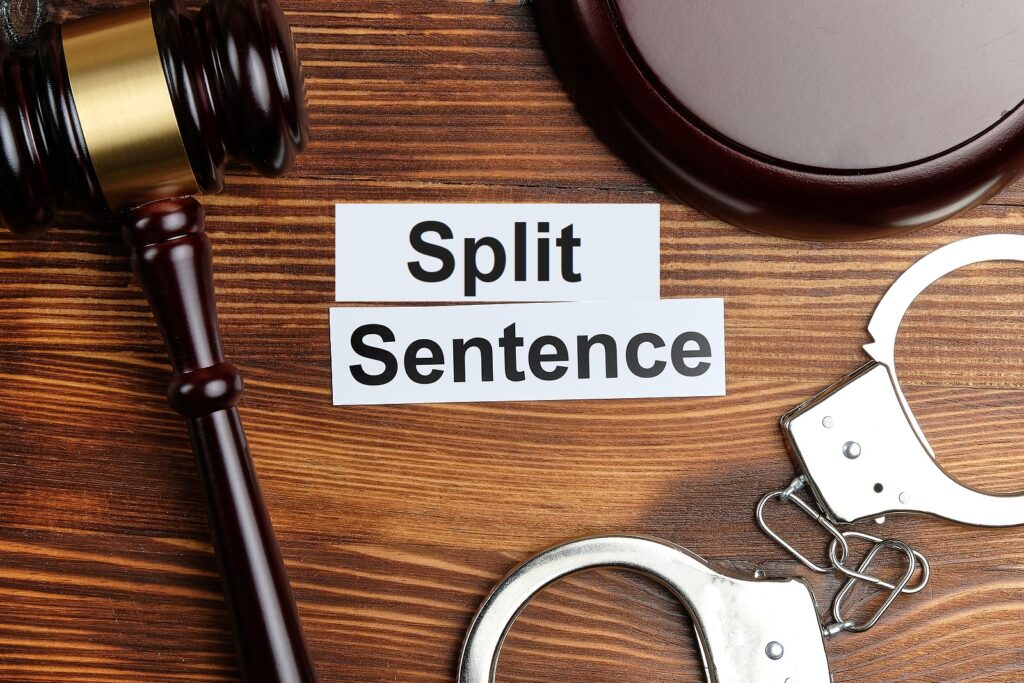When a defendant is charged with a crime, and later found guilty of their charges, they will face sentencing by a judge. A defendant’s sentence will depend on several factors, all of which will further differ among jurisdictions. A common outcome for convicted criminals is a split sentence. Continue reading to learn more about split sentences, including eligibility standards, possible drawbacks, and more.

How Split Sentencing Works
A split sentence is simply one sentence separated into two parts, namely serving as an alternative to an extended prison sentence. For instance, if a defendant is sentenced to jail time, followed by a period of probation, they are entering into a split sentence.
There are many assumptions as to why courts have adopted this form of penalization, some of which include jail overcrowding, trade and industry losses, and progressive movements in the judicial system. Regardless of the reason why it exists, split sentencing is a real possibility for many defendants convicted of a felony crime.
In most cases, a judge decides where to make the split between incarceration and probation on the basis of time. A convicted felon may serve 3 years in prison and 5 years on probation, while another may serve 6 months in jail and 2 years of probation. It all depends on various factors of a convict’s crimes, criminal history, and more.
On the other hand, some states set specific guidelines that judges must adhere to when splitting a sentence for a criminal. Take Alabama for example; in Alabama, if a defendant’s overall sentence is less than 15 years, a judge can order no more than 3 years of imprisonment. Once the convict is released from jail after three years, they must serve the remainder of their sentence on probation, which may or may not include house detention and monitoring.
Eligibility Requirements for Receiving a Split Sentence
Not every convict is given a split sentence. There are certain eligibility requirements, all of which are dependent on the criminal codes specific to each state. Continuing the example of Alabama, a convict who is found guilty of a sexual assault involving a minor is automatically ineligible from being granted a split sentence. Another common disqualification is the length of a convict’s overall sentence. Normally, a sentence exceeding 20 years is exempt from split sentencing.
Possible Drawbacks of a Split Sentence
There are several potential consequences of being handed a split sentence. Two of the most common drawbacks are not being given sufficient time served in jail, or the possibility of having the sentence revoked. Another drawback could be the inconvenience of probation. Some agree that stacking is a possible consequence of a split sentence, which refers to two or more sentences being served consecutively. Also, many states still consider a person a felon, even if they are granted a split sentence.
Do you want to avoid the maximum penalties for your state or federal criminal charges in Indiana? Contact Attorney David E. Lewis at 317-636-7514 to schedule a free initial consultation with a seasoned Indianapolis IN criminal defense lawyer you can trust. We also represent defendants charged in Indiana but who live in another state.
You Should Also Read:
What is the Preemption Doctrine?
Need-to-Know Courtroom Terms and Definitions
What is a Notice to Appear?

